DOI:
https://doi.org/10.38017/1657463X.738Keywords:
theater of the oppressed, dramatic techniques, English language teaching, active methodologies, higher educationAbstract
University teaching has to respond to social demands, and establish links between what is taught in the classroom and what happens in society. For this reason, we chose to introduce the theater of the oppressed (TO) in the English as a foreign language class, in order to make students reflect on situations of oppression and how they can change them. The methodology is qualitative-descriptive. Different activities defined around the principles of the theater of the oppressed will be presented with the aim of introducing a justice perspective in the English as a foreign language class at the university level. At the end of the term, students answered a questionnaire anonymously. Results show that students consider working with role-playing games based in the theater of the oppressed in the classroom contributes to their integral formation, in addition to promoting cooperative work, as well as the integration of the emotional component in the learning process. It also highlights students' belief that the introduction of TO in the teaching-learning process has contributed to favoring a social justice perspective in the classroom. Therefore, we are faced with an appropriate pedagogical tool to introduce social issues and emotional competencies, while working with English language skills.
Downloads
References
Baraúna, T., y Motos, T. (2009) De Freire a Boal. Pedagogía del oprimido-Teatro del oprimido. Ñaque.
Boal, A. (1979). Theatre of the oppressed. Theatre Communications Group.
Boal, A. (1977). Técnicas latinoamericanas de teatro popular. Corregidor.
Boal, A. (1980). Teatro del oprimido 2. Ejercicios para actores y no actores. Nueva Imagen.
Boal, A. (2002). Juegos para actores y no actores. Alba Editorial, Artes Escénicas.
Boal, A. (2004). El arco iris del deseo: del teatro experimental a la terapia. Alba Editorial.
Boal, A. (2006). The Aesthetics of the Oppressed. Routledge.
Boal, A. (2009). Teatro del oprimido. Alba.
Boal, A. (2012). La Estética del oprimido. Alba.
Corral Fullà, A. (2013). El teatro en la enseñanza de lenguas extranjeras. La dramatización como modelo y acción. Didáctica. Lengua y Literatura, 25, 117-134.
Calvo Salvador, A., Haya Salmón, I., y Ceballos López, N. (2015). El Teatro Foro como estrategia pedagógica promotora de la justicia social. Una experiencia de formación inicial del profesorado en la Universidad de Cantabria. Revista Interuniversitaria de Formación del Profesorado, 82(29.1), 89-107.
Dawson, K., y Lee, B.K. (2018). Drama-Based Pedagogy: Activating Learning Across the Curriculum. Intellect.
Freire, P. (1970). Pedagogy of the oppressed (Trad. M. Bergman Ramos). Continuum.
Freire, P. (1986). La educación como práctica de la libertad. Siglo XXI.
Freire, P. (1990). La naturaleza política de la educación: Cultura, poder y liberación. Centro de Publicaciones del M.E.C. y Ediciones Paidós Ibérica, S.A.
Freire, P. (1994). Pedagogía del oprimido. Siglo XXI.
Freire, P. (2003). La importancia de leer y el proceso de liberación. Siglo XXI.
Freire, P. (2006). Pedagogía de la esperanza: un reencuentro con la “pedagogía del oprimido”. Siglo XXI.
García Carrasco, J. (2006). El escenario emocional y la dramática de la formación. En J.M. Asensio, J. García Carrasco, L. Núñez Cubero y J. Larrosa (Coords.), La vida emocional. Las emociones y la formación de la identidad humana (pp. 87-126). Ariel.
Gabino Boquete, M. (2014). El uso del juego dramático en el aula de español como lengua extranjera. Porta Linguarum, 22, 267-283.
Hashemnezhad, H. (2020). Applying Freire’s Critical Pedagogy to Iranian EFL Bilingual and Monolingual Speaking Performance. Journal of Language and Education, 6(4), 90-104. https://doi.org/10.17323/jle.2020.10349
Hidalgo, N., y Murillo, F. J. (2016). Evaluación de estudiantes para la justicia social. Propuesta de un modelo. Revista Internacional de Educación para la Justicia Social (RIEJS), 5(2), 159-179. https://doi.org/10.15366/riejs2016.5.2.008
Jiménez Martínez, M. D., y Felices de la Fuente, M.M. (2018). Cuestiones socialmente vivas en la formación inicial del profesorado: la infancia refugiada siria como problemática. REIDICS Revista de Investigación en Didáctica de las Ciencias Sociales, 3, 87-102.
Lucio-Villegas, E. (2015). Paulo Freire. La educación como instrumento para la justicia social. Revista Internacional de Educación para la Justicia Social (RIEJS), 4(1), 9-20.
Motos, T. (2013). Otros escenarios para el teatro. Ñaque.
Motos, T., y Ferrandis, D. (2015). Teatro aplicado. Teatro del oprimido, teatro playback, dramaterapia. Octaedro.
Motos, T., y Navarro, A. (2011). Máscaras educativas detrás de la tiza. Experimentando estrategias del teatro del oprimido en la formación permanente del profesorado para la reflexión sobre la práctica educativa. Ricerche di Pedagogia e Didattica, 6(1), 1-14.
Murillo, F. J., y Hernández-Castilla, R. (2011). Hacia un concepto de justicia social. REICE. Revista Electrónica Iberoamericana sobre Calidad, Eficacia y Cambio en Educación, 9(4), 7-23.
Murillo, F. J., y Hernández-Castilla, R. (2014). Liderando escuelas justas para la justicia social. Revista Internacional de Educación para la Justicia Social (RIEJS), 3(2), 13-32.
Navarro Solano, M.R. (2007). Drama, creatividad y aprendizaje vivencial: algunas aportaciones del drama a la educación emocional. Cuestiones Pedagógicas, 18, 161-172.
Nhất Hạnh, T., y Weare, K. (2017). Happy teachers change the world. A guide for integrating mindfulness in education. Parallax Press.
Nicholson, H. (2005). Applied drama. The gift of theatre. Palgrave MacMillan.
Oxford, R. L., Olivero, M.M., y Harrison, M. (2020). Peacebuilding in Language Education. Innovations in Theory and Practice. Multilingual Matters.
Peñalva, A., López-Goñi, J.J., y Landa, N. (2013). Competencias emocionales del alumnado de Magisterio: posibles implicaciones profesionales. Revista de Educación, 362, 690-712.
Peñalva-Vélez, A., López-Goñi, J.J., y García-Manso, M.I. (2016 El desarrollo de las competencias emocionales en alumnado de secundaria: perfiles diferenciales en función del sexo. Educatio Siglo XXI, 34(1), 223-242. http://dx.doi.org/10.6018/j/253301
Pérez Fernández, J. (2011). Motivar en Secundaria. El teatro: una herramienta eficaz. Erasmus Ediciones.
Pérez Valverde, C. (2003). Theatre in education (TIE) in the context of educational drama. Lenguaje y textos, 20, 7-19.
Pérez Zaragoza, R.M. (2015). La dramatización como modelo didáctico en competencias para la vida. Una investigación en la formación del profesorado [tesis doctoral, Universidad de Murcia].
Porto, M. (2015) Developing intercultural citizenship education in the language classroom and beyond. Argentinian Journal of Applied Linguistics, 3(2), 9-29.
Prieto García, J. R., Alarcón Rubio, D., y Fernández Portero, C. B. (2018). Aprendizaje y evaluación de competencias en el alumnado universitario de Ciencias Sociales. REDU. Revista de Docencia Universitaria, 16(1), 193-210. https://doi.org/10.4995/redu.2018.8941
Ramos, G., Chiva, I., y Gómez, Mª. B. (2017). Las competencias básicas en la nueva generación de estudiantes universitarios: Una experiencia de Innovación. REDU. Revista de Docencia Universitaria, 15(1), 37-55. https://doi.org/10.4995/redu.2017.5909
Santos Sánchez, D. (2010). Teatro y enseñanza de lenguas. Arco Libros.
Santos Sánchez, D. (2016). El teatro como herramienta didáctica en el aula de secundaria: el tema bélico a través de pic-nic, de Fernando Arrabal. DIGILEC Revista Internacional de Lenguas y Culturas, 3, 51-68.
Tawil, S. (2013). Education for’ Global Citizenship’: A framework for discussion. UNESCO Education Research and Foresight (ERF). Working Papers Series. N. 7. París: UNESCO.
Torres, C.A. (2007). Paulo Freire y el aprendizaje transformador de la justicia social. En A.C. Scocuglia (Org.), Paulo Freire en el tiempo presente (pp. 213-218). Ediciones del CREC.
Valencia Zuluaga, A.P., y Jaramillo Maya, W.A. (2015). Prácticas pedagógicas no excluyentes, desde la perspectiva de la pedagogía crítica. Revista Internacional de Educación para la Justicia Social (RIEJS), 4(1), 89-110.
Villa Sánchez, A. (2020). Aprendizaje basado en competencias: desarrollo e implantación en el ámbito universitario. REDU. Revista de Docencia Universitaria, 18(1), 19-46.
Vygotsky, L. (1978). Mind in society. The development of higher psychological processes. Harvard University Press.
Downloads
Published
How to Cite
Issue
Section
License
Copyright (c) 2021 Cultura científica

This work is licensed under a Creative Commons Attribution-NonCommercial-ShareAlike 4.0 International License.





